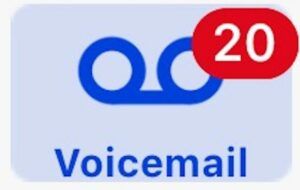 We’ve all had it happen. Your phone rings, but you don’t recognize the number. What do you do?
We’ve all had it happen. Your phone rings, but you don’t recognize the number. What do you do?
A. Answer – you wouldn’t want to appear impolite. B. Let it go! To voicemail. If they really need to speak with you, they’ll leave a message.
If you choose option A., be aware that many calls from unknown numbers are scams. Anyone can be the target of a scam call – you haven’t been singled out. Don’t necessarily trust Caller ID – it can be easily spoofed, or altered to appear legitimate. A call that appears to come from a local number – or from your bank – may actually be coming from across the country or across the globe. Real sales calls legally must tell you that it’s a sales call, the name of the seller, and what they are selling before they make their pitch. They also can only make calls between 8 am and 9 pm – any calls received outside that time period are definitely scams! If you answer a scam call, remember – they are trying to entice you into making an irrational decision that could put your money or identity at risk. This may mean offering a limited time offer or trying to scare you with threats of hefty fines or even arrests. It’s okay to hang up on these scam calls – don’t feel like you are being rude!Never give information about your credit card, bank account, or Social Security Number to a unknown or suspicious caller.
The IRS, FBI, Microsoft, and your bank will not call you about an issue. These calls try to scare you into reacting with tales of warrants out for your arrest or viruses on your computer. Official communication by the IRS and banks is done via mail. Microsoft is not monitoring your computer for viruses. If you receive a call from someone claiming to be from your bank, hang up and call the bank back directly. The caller ID (and the caller) may have be fake!
